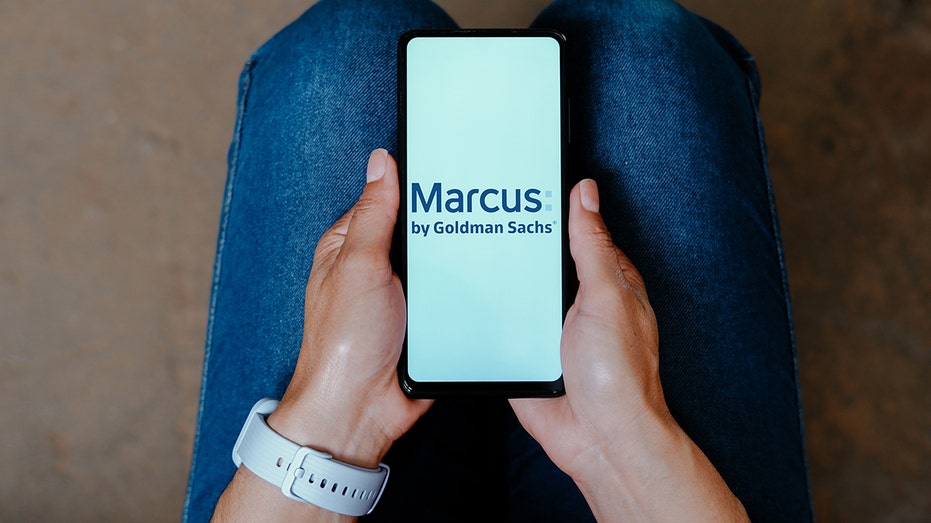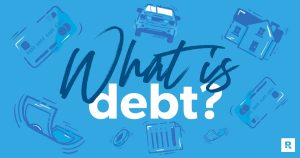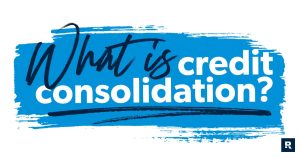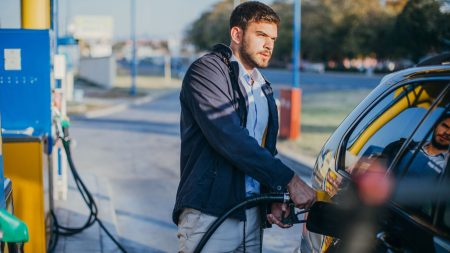Want to watch your money grow?
A high-yield savings account allows your money to make money, with very little work from you.
A high-yield savings account offers a higher interest rate on deposits made than a traditional savings account. Shortly after depositing into a high-yield savings account, you’ll see how much additional cash you are making in interest and regret not starting sooner.
SAVE $10K IN A YEAR WITH THIS STEP-BY-STEP GUIDE
But it’s not too late. Here’s everything you need to know about high-yield savings accounts and how you can open one today.
- How does a high-yield savings account work?
- What bank has the best high-yield savings account?
- What should I look for in a high-yield savings account?
- How do I set up a high-yield savings account?
- What are the best uses for a high-yield savings account?
1. How does a high-yield savings account work?
A high-yield savings account offers higher interest rates than traditional savings accounts.
Generally, a high-yield savings account will have around a 5% interest rate.
The bank will pay you interest off the money you deposit into the account. Typically, you will be paid interest on a monthly or quarterly basis. You can easily see how much you have accumulated in interest on your account.
These accounts differ from certificate of deposit (CD) accounts, as CD accounts require a sum of money to be locked away for a pre-determined period of time.
ARE YOU SAVING TOO MUCH MONEY? 5 PLACES TO PUT EXTRA CASH
You’ll have access to your money in a high-yield savings account without penalty in most cases, although many do have a withdrawal limit per month.
2. What bank has the best high-yield savings account?
Bank rates for a high-yield savings account do fluctuate, which is why it’s important to keep an eye on your account and the rate.
That said, there are certain banks that are favorable options to have a high-yield savings account with.

Examples include Marcus by Goldman Sachs, Ally Bank, Barclays, SoFi and Capital One.
All of these banks offer high-yield savings accounts with no minimum balances required.
Marcus by Goldman Sachs, Barclays, SoFi and Capital One all have no monthly fees associated with their high-yield savings accounts. Ally Bank has a $15 expedited delivery fee, a $20 ongoing domestic wire fee and $25 per hour account research fees.
The rates of the high-yield savings accounts at these banks can vary, but the following are the annual percentage yields (APY) that are associated with each at the time of writing.
- Marcus by Goldman Sachs – 4.40%
- Ally Bank – 4.20%
- Barclays – 4.35%
- SoFi – 4.60%
- Capital One – 4.25%
3. What should I look for in a high-yield savings account?
When shopping around for a high-yield savings account, one of the biggest factors you want to look at is the interest rate. Make sure you are getting the most for your money.
SAVE MORE MONEY: 10 CLEVER WAYS TO CUT SPENDING ON UNNECESSARY ITEMS
You’ll also want to see if there is a minimum balance required for the account. There are plenty of high-yield savings accounts that do not require a minimum balance. These are favorable as you won’t have to stress about taking money out if you need it.
Additionally, take a look into fees. Ideally, you’ll want to choose an account that doesn’t come with any fees.
Many high-yield savings accounts are through online banks. If this is the case, you’ll want to ensure that the bank has great customer service in the event that you have any questions during your time holding the account. Look into what options are available for communication to give you piece of mind.
Lastly, check to make sure that the bank you are getting a high-yield savings account with is FDIC insured. FDIC insured banks protect up to $250,000 per person per account.
4. How do I set up a high-yield savings account?
A high-yield savings account is super easy to set up. If everything goes smoothly, it should only take a few minutes to get started.
Once you choose the bank you’d like to open a high-yield savings account with, go on their website and fill in all the required information.

Once the information is approved, you can start depositing money into the account through your checking account.
USE THESE 5 EXPERT STRATEGIES TO BUILD YOUR EMERGENCY SAVINGS FUND
When you first open an account, deposit a small amount into it, just to be sure everything is working properly.
5. What are the best uses for a high-yield savings account?
Set up automatic transfers to your high-yield savings account. This means that a pre-determined amount chosen by you will automatically move from your checking account to your high-yield on a schedule that you choose. This is a great way to help your money grow with minimal thought from you.
Do keep in mind that just because you have automatic transfers set up, that doesn’t mean you can’t throw in some extra money when you have it.
Many high-yield savings accounts allow you to open different accounts under your name. Leverage this tool if you have different savings goals.
For example, one category could be “Future Home.” Another could be “Emergency Fund.” A third could be “Vacation.” Perhaps even a “Wedding” category.
High-yield savings accounts are great for both long-term and short-term financial goals. Creating different “buckets” catering to each of your goals can help give you a clear picture of how much you have saved in each specific category, rather than just having all your savings lumped into one.
Read the full article here
















